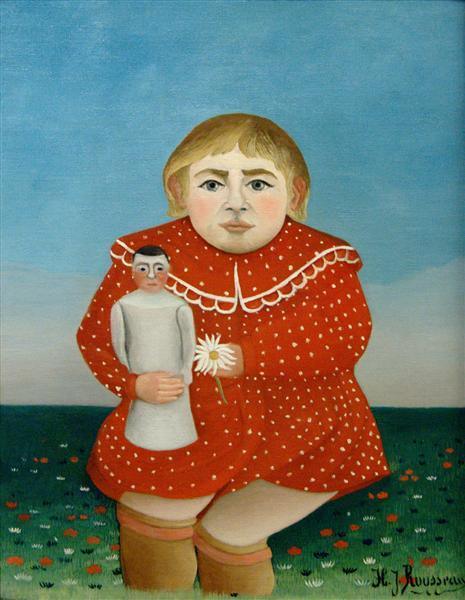Description
The painting "The Girl With a Doll" by Henri Rousseau is a masterpiece of modern art that has captivated viewers since its creation in 1907. This work is a perfect example of the artistic style known as "primitivism", which is characterized by the simplicity of the forms and the absence of perspective.
The composition of the painting is very interesting, as the girl and the doll occupy the center of the image, surrounded by a lush, exotic landscape. The girl's figure is highly detailed and realistic, while the background is made up of simple shapes and bright colors.
Color is another outstanding aspect of this work. Rousseau used a palette of vibrant and saturated colors to create a magical and mysterious atmosphere. The green and blue tones of the landscape contrast with the red dress of the girl and the doll, creating a very striking visual effect.
The story behind this painting is also very interesting. It is said that Rousseau was inspired by a doll he gave to his niece, and that the girl in the painting is actually a representation of the daughter of a friend of the artist. Furthermore, the exotic landscape surrounding the girl and the doll is believed to be a reference to the journeys that Rousseau was never able to undertake.
Finally, there are some little-known aspects of this work that deserve to be mentioned. For example, the doll featured in the painting is said to have been stolen from Rousseau's study shortly after it was created. Furthermore, this work was a favorite of the famous French poet Guillaume Apollinaire, who described it as "one of the most beautiful paintings of our time."

